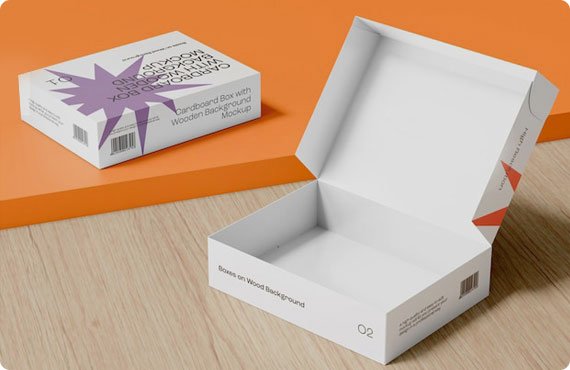September 11, 2025
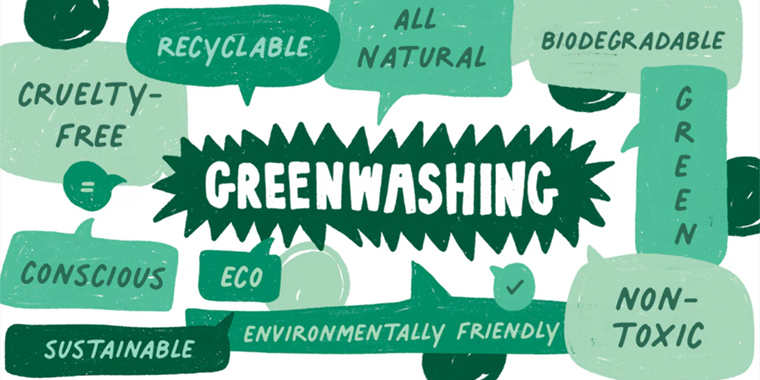
In today’s world, where sustainability is paramount, many brands claim to be eco-friendly, but not all of them are being truthful. This is what greenwashing is - when a brand pretends to offer green solutions without actually taking the necessary steps. A 2022 report revealed that 40% of brands are doing this, misleading consumers just to increase their sales.
Greenwashing is becoming a major issue, and it’s confusing shoppers who want to make responsible choices. It not only harms consumer trust but also damages real sustainability efforts. In this blog, we’ll explore what greenwashing is, how it works, and its effects on businesses and the environment. Plus, we’ll share tips for brands to avoid misleading their customers.
A false marketing strategy that misrepresents a company as eco-friendly without any real sustainable efforts. Many brands are adopting these misleading tactics to appeal to eco-conscious buyers.
In 1986, Jay Westerveld proposed the word greenwashing. His main objectives were
The word greenwashing is made up of two words: green and washing. Green means eco-friendly, and washing means to cover up. It means cleaiming your brand is eco-friendly but it’s actually not. Unfortunately, many brands are deceiving unsuspecting consumers to maximize their profits. At last, it damages customers' trust in original eco-friendly brands.
Cosmetics are packed in plastic packaging that contains a label showing a sustainability mark. It is unclear for buyers to determine whether cosmetics or their packaging are truly eco-friendly.
The primary purpose of a greenwashing strategy is to boost product sales without implementing eco-friendly practices. In recent eras, many conventional companies, the largest carbon emitters, have contributed to the emission of harmful gases. These companies have not taken any strict steps to minimize carbon emissions. Rather, they change their brand name, reshape products, conduct, and add green logos on packaging to present themselves as eco-friendly. Instead, they pretend to be eco-friendly by
It is not easy to recognize the brands that are engaging in greenwashing and whitewashing practices. The product packages mislead eco-conscious consumers with labels, false imagery, fake titles, and vague graphics. This wrong information falsely portrays the brands as truly following sustainability measures, emitting no carbon, pollution, or residual waste. In short, they earn targeted sales quickly by deceiving consumers while violating the principles of sustainability.
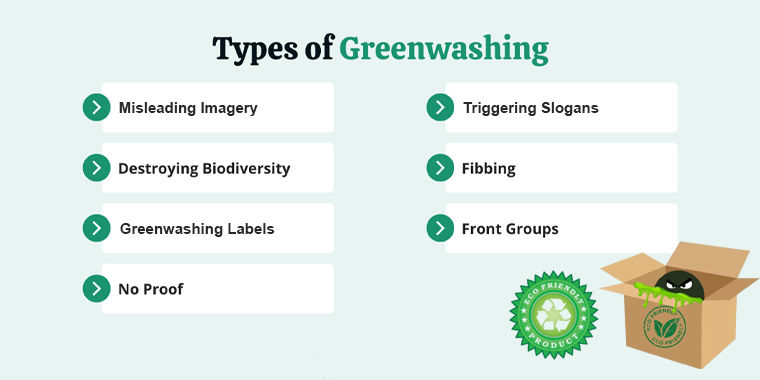
There are no official methods to give the best coverage of eco-friendliness. Non-eco-friendly companies use deceptive strategies to mislead consumers about their sustainability practices and values. Only some information is printed on product packaging to conceal notorious things or highlight artificial fame. Check out some greenwashing products that are misleading consumers and the environment:
One of the remarkable things that mislead consumers is false labels. Labels feature green colors and leaf-like designs to create an organic appearance. Some misleading statements are added in typography fonts. Some words that are commonly used are 100% Natural, Green Certified,” Carbon Neutral, 100% Eco-Friendly, or SBS Approved.
There are many products with eco-friendly labels on the market. Most of them are not fully eco-friendly. Additionally, they are not authorized by third parties. Only labels greenwash these products, and they reap huge sales.
Read Also: Kraft Paper: The Best Material For Robust And Sustainable Packaging
One of the other misleading things on product packaging is the misleading images. Visual representations are more effective in attracting buyers compared to labels alone. Images stun buyers and enhance buying behavior. Packaging with green environments, natural spectacles, and vivid leaflets shows that products are genuine and pollution-free. This deceptive look appeals to eco-conscious buyers, resulting in impulse buying
Slogans play an important role in influencing consumer perception. Many brands claim to be eco-friendly by publishing catchy slogans. These slogans are mostly printed on product packaging or in promotional ads: 100% Eco-friendly and Natural or Organic Products. These not only appeal to customers but also leave a positive image in the ever-rising polluted surroundings.
Another greenwashing tactic is bait-and-switch. In this technique, brands show something interesting with discounts, eco-friendliness, and extraordinary benefits. Second thing, what is greenwashing in fashion? In the fashion industry, greenwashing refers to clothing that is organic and sustainable. They mislead with the words green or organic. In reality, they do not fully implement marketing rules. It is best for attracting consumers towards specific brands. Bait is the eco-friendly image of products, while the switch occurs when customers are ready to purchase. This unethical practice misleads consumers and ruins their trust in a brand.
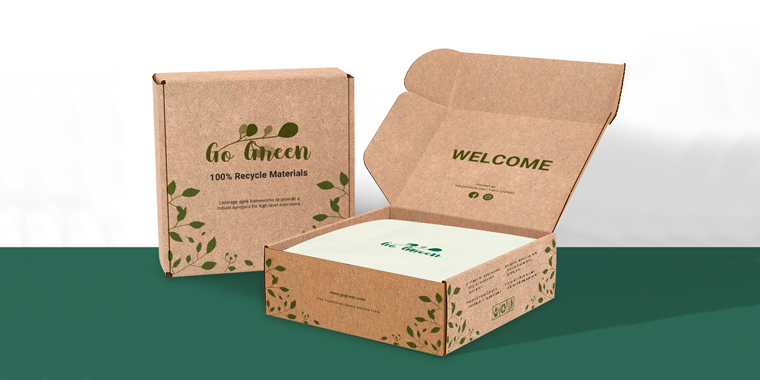
Greenwashing can be fruitful for a brand in a limited time frame. At last, reality exposes that it results in damaging customers' blind trust in a brand. It ruins all fame and credibility in no time. Moreover, product sales fall to dangerous levels, ultimately breaking business revenue. Some of the negative effects of greenwashing for businesses are as follows:
It is challenging for a business to leave a lasting impression in the market. After becoming familiar with the market, sustaining brand fame with high regard requires full struggle. The greenwashing companies adopt fake strategies to get customer engagement quickly, but this fame cannot be sustained for a long time. When reality is exposed, then all brands' fame is ruined.
Once a brand's reputation is damaged by misleading tactics, all of the brand loyalty fades in customers' minds. Soon, customer trust in such brands broke down, making them wary of forming an opinion about them. Additionally, they never recommend such a brand when shopping. This also makes customers conscious about even genuine brands.
What does greenwashing mean in sustainable investing? It claims to prioritize eco-friendliness, but fails to take any real action. When reality is exposed. Product sales decrease to a dangerous level. This destroys business and fails to breathe in the market. Hence, avoid such fake advertisements for quick sales and prolonged damage to your brand.
In addition to damaging brand reputation and reducing product sales, greenwashing also has a detrimental impact on the environment. The greenwashed brand claimed that they were taking sustainable measures, but in reality, they were not doing so. Only these brands use the tags to showcase an eco-friendly image.
They consume energy, water, and other resources without any limits. Additionally, waste production and mass production are not checked or controlled. This can cause depletion of natural energy resources and pollute the environment badly. Such brands are enemies of the ecosystem, affecting living creatures on the planet.
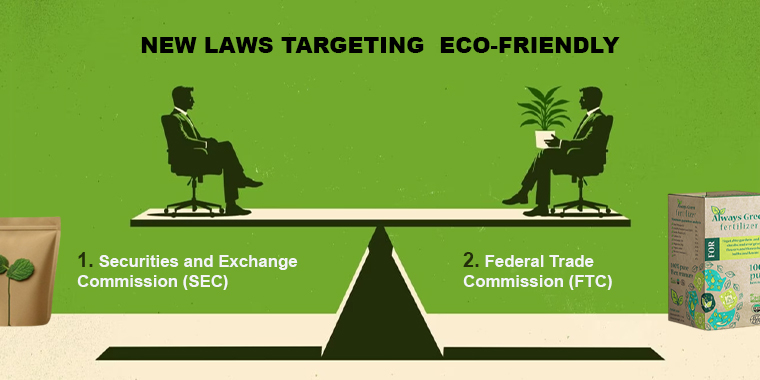
To address increasing false claims and a decline in customer loyalty, brands are seeking to enact new laws. Many strategies were built and renovated over time. In 1992, the US Federal Trade Commission (FTC) used the term “Green Guides” to minimize environmental damage. This strategy was revised in 1996, 1998, and 2012. The European Union and the United States introduced new laws in 2025.
Let’s explore the latest laws to prevent the risk of counterfeiting:
The SEC pays heed to minimizing global warming and climate change.
The FTC used the term "Green Guides" to minimize false claims. They describe the key difference between greenwashing and green marketing. The first is accurate and authentic, while the second is only a bogus advertisement.
There are various tactics to stop the risk of greenwashing.
As greenwashing defames genuine brands. Therefore, one important tactic to decrease false claims is to impose penalties on brands that engage in greenwashing. When these brands bear the huge fines and severe sentences from courts, brands will think before misguiding the customers.
Misleading brands use false statements, fake images, and vague titles to represent themselves as eco-friendly. It must be written clearly about sustainability. If it is mentioned on the box, “100% Sustainable.” It is vague to understand which is eco-friendly, the products or the packaging. Therefore, now brands prefer to use clear and generic statements.
For building brand credibility, explain your claims and narrative. And also explain how you are achieving these goals.
People like things that are easy to understand and comprehend. Therefore, use clear and straightforward phrases to showcase your sustainability efforts. Intricate data and analysis are difficult for customers.
Greenwashing is a misleading practice that portrays a brand's narrative and business motives as sustainable while making no practical efforts. This method has affected the market badly and damaged the reputation of genuine eco-friendly companies. Hence, many governments make strict laws to minimize this practice so that everything about the brand must be transparent.
Are you looking for perfect packaging with authentic claims and innovative packaging? Contact Custom Designs Boxes to get custom packaging products that showcase your brand’s commitment to green marketing. For more information, email us at sales@customdesignsboxes.com.
Find the perfect packaging solutions tailored to your industry niche.
Don't just imagine – experience excellence up close, as you can check our superior craftsmanship before making your decision by ordering your sample kit.
